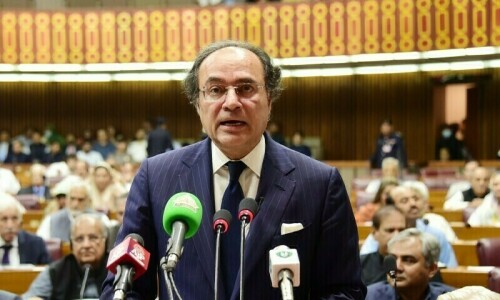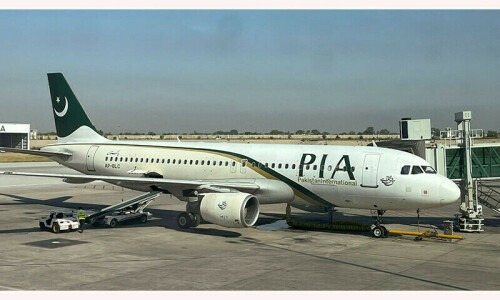KARACHI: A session regarding the political crisis in Bangladesh was organised at the Pakistan Institute of International Affairs (PIIA) on Saturday where experts tried putting the past and present of Bangladesh into perspective to understand where the country was headed.
The session, “Political Crisis in Bangladesh”, was held in PIIA’s library. It was chaired by its chairperson Dr Masuma Hasan and participated by former High Commissioner of Pakistan to Bangladesh and Kenya and Permanent Representative to the United Nations Environment Programme and UN Habitat Ambassador Rafiuzzaman Siddiqui and former chairperson department of International Relations, University of Karachi and leading peace scholar Prof Syed Sikander Mehdi.
Dr Masuma Hasan said that Bangladesh was born out of bloodshed and has seen political assassinations and violence throughout, the most famous of which was the assassination of Sheikh Mujibur Rahman.
About his daughter, she said that she ruled with an iron hand and has always carried bitterness for Pakistan. “As the prime minister, her rule was criticised but Bangladesh’s economy grew under her,” she pointed out.
“She fled to India on August 5 in the face of the student-led protest and she says that her ouster was managed by the US because she did not hand over Saint Martin’s Island in the Bay of Bengal to them for making a military base. But the island is too small to be turned into a military base,” she said.
About the recent revolution, she said, it is being called the ‘Monsoon Revolution’ and is seen as the second biggest revolution after the revolution that led to the birth of the country. She said that the Chief Adviser of Bangladesh Muhammad Yunus flew in from France to a grand welcome. He has 27 portfolios in his cabinet, which includes two of the revolutionary students including the student leader Naheed Islam.
Dr Hasan then said that now everyone is wondering how long the interim government would last. “The opposition wants elections in three months but no one in the government is talking about holding elections. Meanwhile, the chief justice, junior judges, state bank president and vice chancellors of universities have been forced to resign. The students want Sheikh Hasina extradited to face a trial in Bangladesh,” she said.
Ambassador Rafiuzzaman Siddiqui said that he served in Bangladesh twice, from 2002 to 2006 as counsellor and as high commissioner from 2016 to 2018.
About his earlier assignment in Dhaka, he said that he remembers seeing all kinds of traffic on the roads, such as rickshaws, bicycles, motorbikes, buses ... leading to complete chaos. “But in 2016, the city had changed phenomenally. Earlier, there was naked poverty staring you in the face in Bangladesh but later I could see a big change in infrastructure. There were some 15 five-star hotels in Dhaka alone and the apartments in the capital were also high class,” he said.
“There was a drastic change in politics as well. As the new Pakistani High Commissioner I was not welcomed. The foreign minister, foreign secretary never received me. They only summoned me when needed. Earlier in 2002, I had entered Bangladesh without a visa and they had made special efforts to facilitate me within an hour. And in 2016, the presentation of my credentials was itself quite an experience when the wrong file with points for the talk with the new high commissioner of Pakistan was handed to me by mistake. I saw those points and froze. It had things I cannot even mention.
Despite such challenges, he said, Bangladesh was his favourite posting as he was known and respected there by the forthcoming common people of the country out of respect for his grandfather Chaudhry Khaliquzzaman.
Prof Sikander Mehdi said that he had just been appointed as a lecturer in Dhaka University in 1971. “We were living quite peacefully in the Bengali area. My father Akhtar Payami was a well-respected journalist there. I studied there and then, in 1970, got a job as lecturer at Dhaka University where I continued teaching until a time came when my family decided to move to Pakistan. I informed my department chairman who asked me to stay. He said I would be safe there as they knew me, as they were also my teachers when I was studying at Dhaka University. They said they needed people like me,” he said.
“Still, I left because I said that my family had come from Bihar to Pakistan and that we will go where Pakistan is,” he said.
Published in Dawn, August 18th, 2024














































Dear visitor, the comments section is undergoing an overhaul and will return soon.